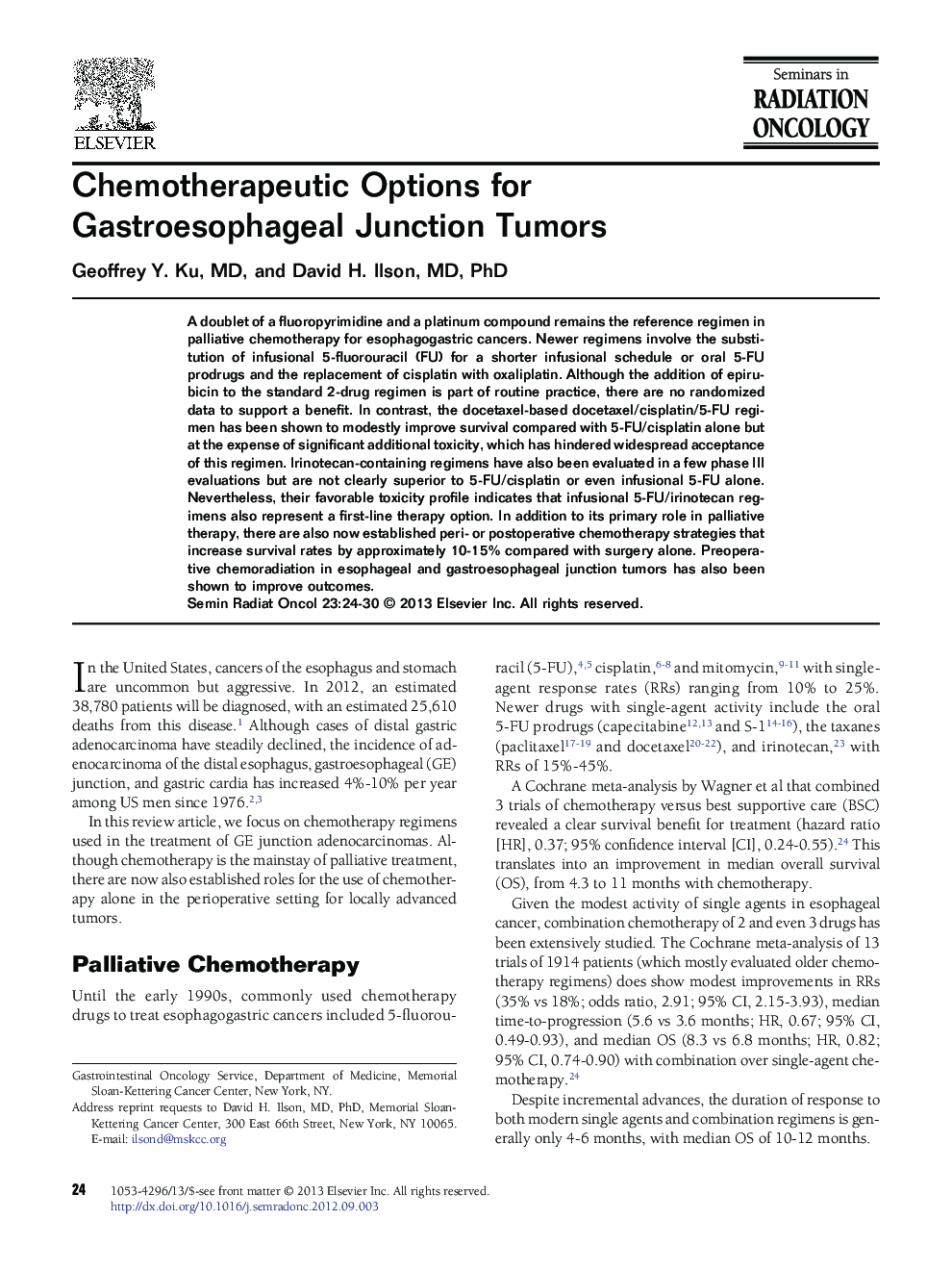| Article ID | Journal | Published Year | Pages | File Type |
|---|---|---|---|---|
| 2726608 | Seminars in Radiation Oncology | 2013 | 7 Pages |
A doublet of a fluoropyrimidine and a platinum compound remains the reference regimen in palliative chemotherapy for esophagogastric cancers. Newer regimens involve the substitution of infusional 5-fluorouracil (FU) for a shorter infusional schedule or oral 5-FU prodrugs and the replacement of cisplatin with oxaliplatin. Although the addition of epirubicin to the standard 2-drug regimen is part of routine practice, there are no randomized data to support a benefit. In contrast, the docetaxel-based docetaxel/cisplatin/5-FU regimen has been shown to modestly improve survival compared with 5-FU/cisplatin alone but at the expense of significant additional toxicity, which has hindered widespread acceptance of this regimen. Irinotecan-containing regimens have also been evaluated in a few phase III evaluations but are not clearly superior to 5-FU/cisplatin or even infusional 5-FU alone. Nevertheless, their favorable toxicity profile indicates that infusional 5-FU/irinotecan regimens also represent a first-line therapy option. In addition to its primary role in palliative therapy, there are also now established peri- or postoperative chemotherapy strategies that increase survival rates by approximately 10-15% compared with surgery alone. Preoperative chemoradiation in esophageal and gastroesophageal junction tumors has also been shown to improve outcomes.
